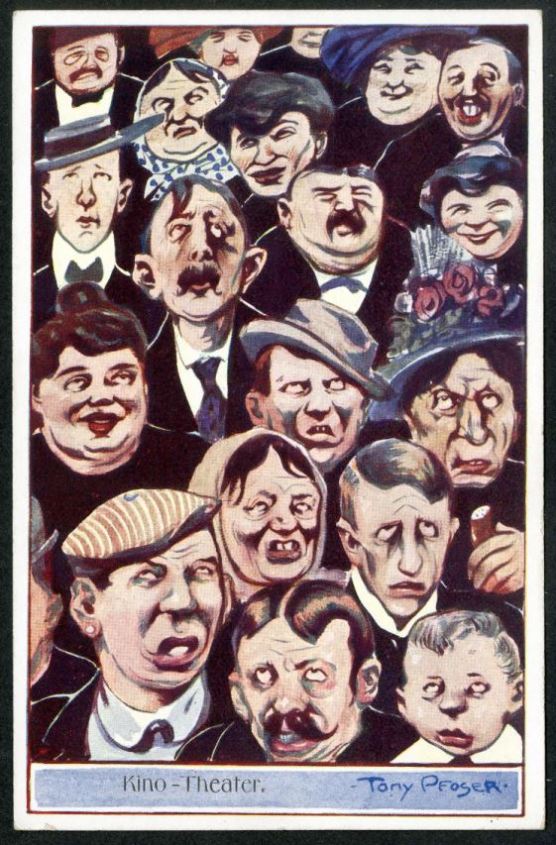Source: James Joyce, extract from letter to Stanislaus Joyce, 28 December 1904, reproduced in Richard Ellmann (ed.), Letters of James Joyce, vol. II (New York: Viking Press, 1966), p. 75
Text: One night I had a severe cramp in my stomach and Nora prayed ‘O my God, take away Jim’s pain.’ The other evening we went to a bioscope. There were a series of pictures about betrayed Gretchen. In the third last Lothario throws her into the river and rushes off, followed by rabble. Nora said ‘O, policeman, catch him’.
Comments: James Joyce (1882-1941) was an Irish novelist and briefly (December 1909-January 1910) a cinema manager. In 1904, while he and Nora Barnacle were living in Pola (now Pula) in what is now Croatia but was then part of Austria-Hungary, they went to a travelling film show, possibly the ‘Bioscopio elettrico’ managed by Carlo Lifka, which was located close to the Berlitz language school where Joyce taught. The reference to Gretchen and Lothario is probably generic rather than a specific film with those characters. Stanislaus Joyce was his brother.
